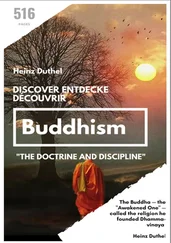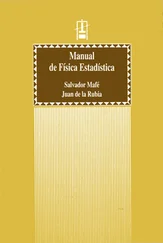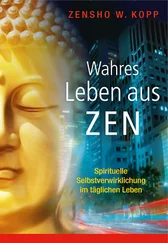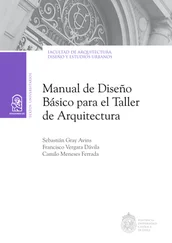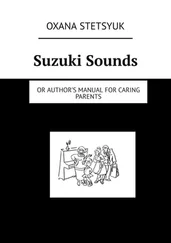Teitaro Suzuki - Manual of Zen Buddhism
Здесь есть возможность читать онлайн «Teitaro Suzuki - Manual of Zen Buddhism» весь текст электронной книги совершенно бесплатно (целиком полную версию без сокращений). В некоторых случаях можно слушать аудио, скачать через торрент в формате fb2 и присутствует краткое содержание. Жанр: Религиоведение, Религия, Руководства, на английском языке. Описание произведения, (предисловие) а так же отзывы посетителей доступны на портале библиотеки ЛибКат.
- Название:Manual of Zen Buddhism
- Автор:
- Жанр:
- Год:неизвестен
- ISBN:нет данных
- Рейтинг книги:3 / 5. Голосов: 1
-
Избранное:Добавить в избранное
- Отзывы:
-
Ваша оценка:
- 60
- 1
- 2
- 3
- 4
- 5
Manual of Zen Buddhism: краткое содержание, описание и аннотация
Предлагаем к чтению аннотацию, описание, краткое содержание или предисловие (зависит от того, что написал сам автор книги «Manual of Zen Buddhism»). Если вы не нашли необходимую информацию о книге — напишите в комментариях, мы постараемся отыскать её.
Manual of Zen Buddhism — читать онлайн бесплатно полную книгу (весь текст) целиком
Ниже представлен текст книги, разбитый по страницам. Система сохранения места последней прочитанной страницы, позволяет с удобством читать онлайн бесплатно книгу «Manual of Zen Buddhism», без необходимости каждый раз заново искать на чём Вы остановились. Поставьте закладку, и сможете в любой момент перейти на страницу, на которой закончили чтение.
Интервал:
Закладка:
Good friends, the passions are no other than enlightenment ( bodhi ). When your antecedent thought is confused yours is an ordinary mind; as soon as your succeeding thought is enlightened, you are a Buddha.
Good friends, Prajnaparamita is the most honoured, the highest, the foremost; it is nowhere abiding, nowhere departing, nowhere coming; all the Buddhas of the past, present, and future issue out of it. By means of Great Wisdom ( ta-chih-hui = mahaprajna ) that leads to the other shore ( paramita ), the five skandhas, the passions, and the innumerable follies are destroyed. When thus disciplined, one is a Buddha, and the three passions [i.e. greed, anger, and folly] will turn into Morality ( sila ), Meditation ( dhyana ), and Wisdom ( prajna ).
27. Good friends, according to my way of understanding this truth, 84,000 wisdoms ( chih-hui ) are produced from one Prajna. Why? Because there are 84,000 follies. If there were no such innumerable follies, Prajna is eternally abiding, not severed from Self-nature. He who has an insight into this truth is free from thoughts, from recollections, from attachments; in him there is no deceit and falsehood. This is where the essence of Suchness is by itself. When all things are viewed in the light of wisdom ( chih-hui =prajna), there is neither attachment nor detachment. This is seeing into one's Nature and attaining the truth of Buddhahood.
28. Good friends, if you wish to enter into the deepest realm of Truth ( dharmadhatu ), and attain the Prajnasamadhi, you should at once begin to exercise yourselves in the life of Prajnaparamita; you just devote yourselves to the one volume of the Vajracchedika-prajnaparamita Sutra , and you will, seeing into the nature of your being, enter upon the Prajnasamadhi. It should be known that the merit of such a person is immeasurable, as is distinctly praised in the sutras, of which I need not speak in detail.
This Truth of the highest order is taught to people of great intelligence and superior endowments. If people of small intelligence and inferior endowments happen to hear it, no faith would ever be awakened in their minds. Why? It is like a great dragon pouring rains down in torrents over the Jambudipa: cities, towns, villages are all deluged and carried away in the flood, as if they were grass-leaves. But when the rain, however much, falls on the great ocean, there is in it neither an increase nor a decrease.
When people of the Great Vehicle listen to a discourse on the Vajracchedika their minds are opened and there is an intuitive understanding. They know thereby that their own Nature is originally endowed with Prajna-wisdom and that all things are to be viewed in the light of this wisdom ( chih-hui ) of theirs, and they need not depend upon letters. It is like rain-waters not being reserved in the sky; but the water is drawn up by the dragon-king out of the rivers and oceans, whereby all beings and all plants, sentient and non-sentient, universally share the wet. All the waters flowing together once more are poured into the great ocean, and the ocean accepting all the waters fuses them into one single body of water. It is the same with Prajna-wisdom which is the original Nature of all beings.
29. When people of inferior endowments hear this “abrupt” doctrine here discoursed on, they are like those plants naturally growing small on earth, which, being once soaked by a heavy rain, are all unable to raise themselves up and continue their growth. It is the same with people of inferior endowments. They are endowed with Prajna-wisdom as much as people of great intelligence; there is no distinction. Why is it then that they have no insight even when listening to the Truth? It is due to the heaviness of hindrance caused by false views and to the deep-rootedness of the passions. It is like an overcasting cloud screening the sun; unless it blows hard no rays of light are visible.
There is no greatness or smallness in Prajna-wisdom, but since all beings cherish in themselves confused thoughts, they seek the Buddha by means of external exercises, and are unable to see into their Self-nature. That is why they are known to be people of inferior endowments.
Those beings who, listening to the “abrupt” doctrine, do not take themselves to external exercises, but reflecting within themselves raise this original Nature all the time to the proper viewing [of the Truth], remain [always Undefiled by] the passions and the innumerable follies; and at that moment they all have an insight [into the Truth]. It is like the great ocean taking in all the rivers, large and small, and merging them into one body of water—this is seeing into one's own Nature. [He who thus sees into his own Nature] does not abide anywhere inside or outside; he freely comes and departs; he knows how to get rid of attaching thoughts; his passage has no obstructions. When one is able to practise this life, he realizes that there is from the first no difference between [his Self-Nature] and Prajnaparamita. [2]
30. All the sutras and writings, all the letters, the two vehicles Major and Minor, the twelve divisions [of Buddhist literature]-these are all set forth because of the people of the world. Because there is wisdom-nature ( chih-hui-hsing ), therefore there is the establishment of all these works. If there were no people of the world, no multitudinous objects would ever be in existence. Therefore, we know that all objects rise originally because of the people of the world. All the sutras and writings are said to have their existence because of the people of the world.
The distinction of stupidity and intelligence is only possible among the people of the world. Those who are stupid are inferior people and those who are intelligent are superior people. The confused ask the wise, and the wise discourse for them on the Truth in order to make the stupid enlightened and have an intuitive understanding of it. When the confused are enlightened and have their minds opened, they are not to be distinguished from the people of great intelligence.
Therefore, we know that Buddhas when not enlightened are no other than ordinary beings; when there is one thought of enlightenment, ordinary beings at once turn into Buddhas. Therefore, we know that all multitudinous objects are every one of them in one's own mind. [3]Why not, from within one's own mind, at once reveal the original essence of Suchness? Says the Bodhisattvasila Sutra : “My original Self-nature is primarily pure; when my Mind is known and my Nature is seen into I naturally attain the path of Buddhahood.” Says the Vimalakirti Sutra: “When you have an instant opening of view you return to your original Mind.”
48. The Great Master died on the third day of the eighth month of the second year of Hsien-t'ien (713 C.E.). On the eighth day of the seventh month of this year he had a farewell gathering of his followers as he felt that he was to leave them forever in the following month, and told them to have all the doubts they might have about his teaching once for all settled on this occasion. As he found them weeping in tears he said: “You are all weeping, but for whom are you so sorry? If you are sorry for my not knowing where I am departing to, you are mistaken; for I know where I am going. Indeed, if I did not, I would not part with you. The reason why you are in tears is probably that you do not yourselves know whither I am going. If you did, you would not be weeping so. The Essence of the Dharma knows no birth-and-death, no coming-and-going. Sit down, all of you, and let me give you a gatha with the title, “On the Absolute” [4]
There is nothing true anywhere,
The true is nowhere to be seen;
If you say you see the true,
This seeing is not the true one. [5]
Интервал:
Закладка:
Похожие книги на «Manual of Zen Buddhism»
Представляем Вашему вниманию похожие книги на «Manual of Zen Buddhism» списком для выбора. Мы отобрали схожую по названию и смыслу литературу в надежде предоставить читателям больше вариантов отыскать новые, интересные, ещё непрочитанные произведения.
Обсуждение, отзывы о книге «Manual of Zen Buddhism» и просто собственные мнения читателей. Оставьте ваши комментарии, напишите, что Вы думаете о произведении, его смысле или главных героях. Укажите что конкретно понравилось, а что нет, и почему Вы так считаете.



